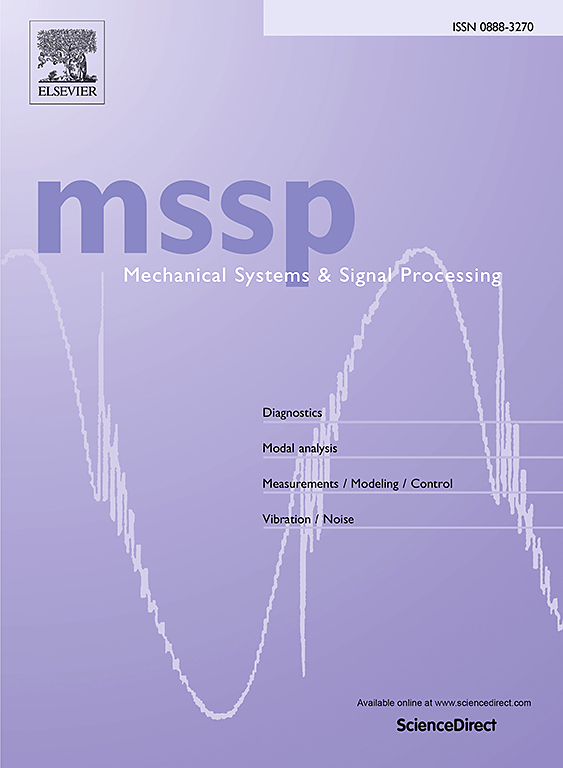自适应专家集成故障诊断:解决分布变化的图因果框架
IF 7.9
1区 工程技术
Q1 ENGINEERING, MECHANICAL
引用次数: 0
摘要
由于运行工况的复杂性和多变性,准确的故障诊断对于保证风力发电机组的效率和降低维护成本至关重要。然而,现有的深度学习故障检测模型经常与环境变化引起的分布变化作斗争,导致预测不可靠。为此,本文提出了GCI- odg框架,这是一种基于图因果干预(GCI)的创新方法,以提高风电机组智能故障诊断中的out - distribution (OOD)泛化。该框架的核心创新包括一种分层图表示,可以捕获多条件时间序列数据的局部和全局特征,从而提高模型检测复杂故障模式的能力。引入自适应专家集成机制,利用在没有明确环境数据的情况下推断的伪环境标签,实现动态特征提取和跨不同操作条件的鲁棒自适应。此外,该框架采用因果推理策略,包括后门调整,以隔离稳定的,环境不变的特征,有效地减轻虚假相关性和分布变化的影响。在多个基准数据集(包括现实世界的风力涡轮机数据)上进行了广泛的实验,验证了所提出的GCI-ODG框架的有效性。结果表明,在不同条件下,分类精度和模型鲁棒性都有显著提高。GCI-ODG框架展示了处理重大分布变化的卓越能力,证明了其作为智能诊断的可扩展和通用解决方案的价值。这些发现突出了它在复杂工业环境中可靠和有效的故障检测的潜力。本文章由计算机程序翻译,如有差异,请以英文原文为准。
Adaptive expert ensembles for fault diagnosis: A graph causal framework addressing distributional shifts
Due to the complexity and variability of operating conditions, accurate fault diagnosis is crucial to ensure wind turbine efficiency and reduce maintenance costs. However, existing deep learning models for fault detection often struggle with distribution shifts caused by environmental changes, leading to unreliable predictions. In response, this paper proposes the GCI-ODG framework, an innovative approach based on Graph Causal Intervention (GCI) to enhance Out-Of-Distribution (OOD) generalization in intelligent fault diagnosis of wind turbines. The core innovations of this framework include a hierarchical graph representation that captures both local and global features of multi-condition time-series data, improving the model’s ability to detect intricate fault patterns. An adaptive expert ensemble mechanism is introduced, utilizing pseudo-environment labels inferred without explicit environmental data, enabling dynamic feature extraction and robust adaptation across diverse operating conditions. Additionally, the framework employs causal inference strategies, including backdoor adjustment, to isolate stable, environment-invariant features, effectively mitigating the impact of spurious correlations and distribution shifts. Extensive experiments across multiple benchmark datasets, including real-world wind turbine data, validate the effectiveness of the proposed GCI-ODG framework. The results indicate notable enhancements in both classification accuracy and model robustness under diverse conditions. The GCI-ODG framework demonstrates exceptional capability in handling significant distribution shifts, proving its value as a scalable and generalizable solution for intelligent diagnostics. These findings highlight its potential for reliable and efficient fault detection in complex industrial environments.
求助全文
通过发布文献求助,成功后即可免费获取论文全文。
去求助
来源期刊

Mechanical Systems and Signal Processing
工程技术-工程:机械
CiteScore
14.80
自引率
13.10%
发文量
1183
审稿时长
5.4 months
期刊介绍:
Journal Name: Mechanical Systems and Signal Processing (MSSP)
Interdisciplinary Focus:
Mechanical, Aerospace, and Civil Engineering
Purpose:Reporting scientific advancements of the highest quality
Arising from new techniques in sensing, instrumentation, signal processing, modelling, and control of dynamic systems
 求助内容:
求助内容: 应助结果提醒方式:
应助结果提醒方式:


